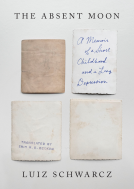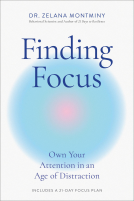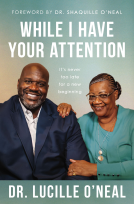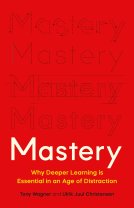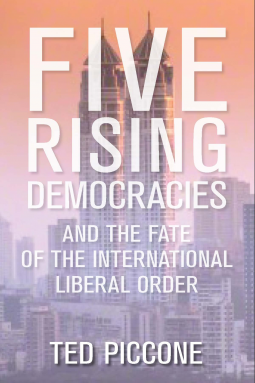
Five Rising Democracies
And the Fate of the International Liberal Order
by Ted Piccone
This title was previously available on NetGalley and is now archived.
Send NetGalley books directly to your Kindle or Kindle app
1
To read on a Kindle or Kindle app, please add kindle@netgalley.com as an approved email address to receive files in your Amazon account. Click here for step-by-step instructions.
2
Also find your Kindle email address within your Amazon account, and enter it here.
Pub Date Feb 09 2016 | Archive Date Mar 31 2016
The Brookings Institution Press | Brookings Institution Press
Description
Shifting power balances in the world are shaking the foundations of the liberal international order and revealing new fault lines at the intersection of human rights and international security. Will these new global trends help or hinder the world's long struggle for human rights and democracy? The answer depends on the role of five rising democracies—India, Brazil, South Africa, Turkey, and Indonesia—as both examples and supporters of liberal ideas and practices.
Ted Piccone analyzes the transitions of these five democracies as their stars rise on the international stage. While they offer important and mainly positive examples of the compatibility of political liberties, economic growth, and human development, their foreign policies swing between interest-based strategic autonomy and a principled concern for democratic progress and human rights. In a multipolar world, the fate of the liberal international order depends on how they reconcile these tendencies.
Available Editions
| EDITION | Paperback |
| ISBN | 9780815725794 |
| PRICE | $26.00 (USD) |
Average rating from 4 members
Featured Reviews
 Joseph S, Reviewer
Joseph S, Reviewer
Five Rising Democracies: And the Fate of the International Liberal Order by Ted Piccone is a study of five countries that have made or in the case of one nearly embraced a democratic system of government. Piccone is a senior fellow in the Project on International Order and Strategy and Latin America Initiative in the Foreign Policy program at Brookings. His research is focused on global democracy and human rights policies; U.S.-Latin American relations, including Cuba; emerging powers; and multilateral affairs. Previously, he served as the acting vice president and director of the Foreign Policy program.
The American public, in general, is fickle about democracies in other countries. We tend to believe in what we want to believe. Many believed that Kuwait was a democracy in the first Gulf War and needed our help to return to democratic rule. How many times have Americans cursed France for acting in its interest instead of ours? Russia is a democracy only when it does something we like. Many people saw no problem in overthrowing democratically elected governments if they were too far left. We cheered Yeltsin in the fall of the Soviet Union, but now have Putin in something that is a deep perversion of the idea of democracy. What does it take to become a democracy? It has to be more than the definition I learned in grad school of a simple, peaceful transition of power.
The international liberal order is the idea that democracies do not go to war against each other. They support the same core goals of guaranteed freedoms and human rights. It is a system that believes democratic ideals are not only shared by all, but with the same vigor. Piccone chooses five new democracies and shows that there is a difference and in many cases countries, democracies or not, act as historically expected -- in their own interests.
Looking at India, Brazil, South Africa, Indonesia, and Turkey Piccone gives the reader a wide variety of historical and cultural developments of democracies. It is nowhere near the one size fits all process. Brazil and Indonesia both became democracies after military dictatorships. South Africa made a huge transition socially and politically after apartheid. Indonesia and India have tremendous cultural and religious diversity inside their borders. Turkey struggles between the secular and the religious. That is perhaps the most difficult situation when a country shifts from secular rule to religious majorities in government. Iran experienced that in its revolution and it was devastating to many.
The world is a complex place and countries' interactions with the world depend on more than the idea of shared values. These five democracies had little difficulty in condemning the Libyan government’s abuses to its own population but were hesitant to support the use of force or commit themselves to the struggle. In Syria, until very recently, Turkey chose to stand on the sidelines and allow Russia to intervene in Syria because Russia provided the bulk of Turkey’s natural gas.
Piccone looks at each country and examines its role and priorities on the international stage. There can be little doubt that democracy* is the fairest form of government, but does it always work as others intend it to is another question. Democracies can disagree with other democracies and often do. Democracies are themselves diverse in their histories and their priorities. America was a democracy that twice thought it was not in its interest to fight European wars, only to be dragged in later. Can Brazil be blamed for not wanting to commit to military involvement in Libya? Can other nations be expected to act against their economic interests to support grander ideas? Five Rising Democracies is an excellent look at democracy in the post- Cold War world.
*Democracy used throughout this review in its most general terms of an elected government -- representational democracy, parliamentary or other form of popularly elected government.
 Linda S, Librarian
Linda S, Librarian
Over the past few weeks I have spent quite a bit of time helping students with research, with citing sources and with choosing non-fiction books to read for Junior Theme. Their interests are many and varied, often covering topics that I have noted in previous posts on non-fiction works related to poverty, fracking, class issues, health care, and race or ethnic identity to name just a few. Here, now are comments about several NEW nonfiction books that were just published in February:
Five Rising Democracies (Brookings Institution, pbk Feb. 23) by Ted Piccone, a senior fellow with the Project on International Order and Strategy at Brookings. This work focuses on India, Brazil, South Africa, Turkey, and Indonesia. Piccone discusses events and trends which he sees as impacting global efforts regarding human rights and democracy. Given the upcoming Olympics and challenges from the Zika virus, the section on Brazil seemed especially timely. Five Rising Democracies has more of a scholarly tone and language, but should have some interest for faculty and specialized Senior classes.
Reviews of other books and links to past reviews are included in the live post.
Readers who liked this book also liked:
Michelle Cassandra Johnson; Amy Burtaine
Health, Mind & Body, Outdoors & Nature, Religion & Spirituality
Christopher L. Eisgruber
Nonfiction (Adult), Politics & Current Affairs, Professional & Technical
